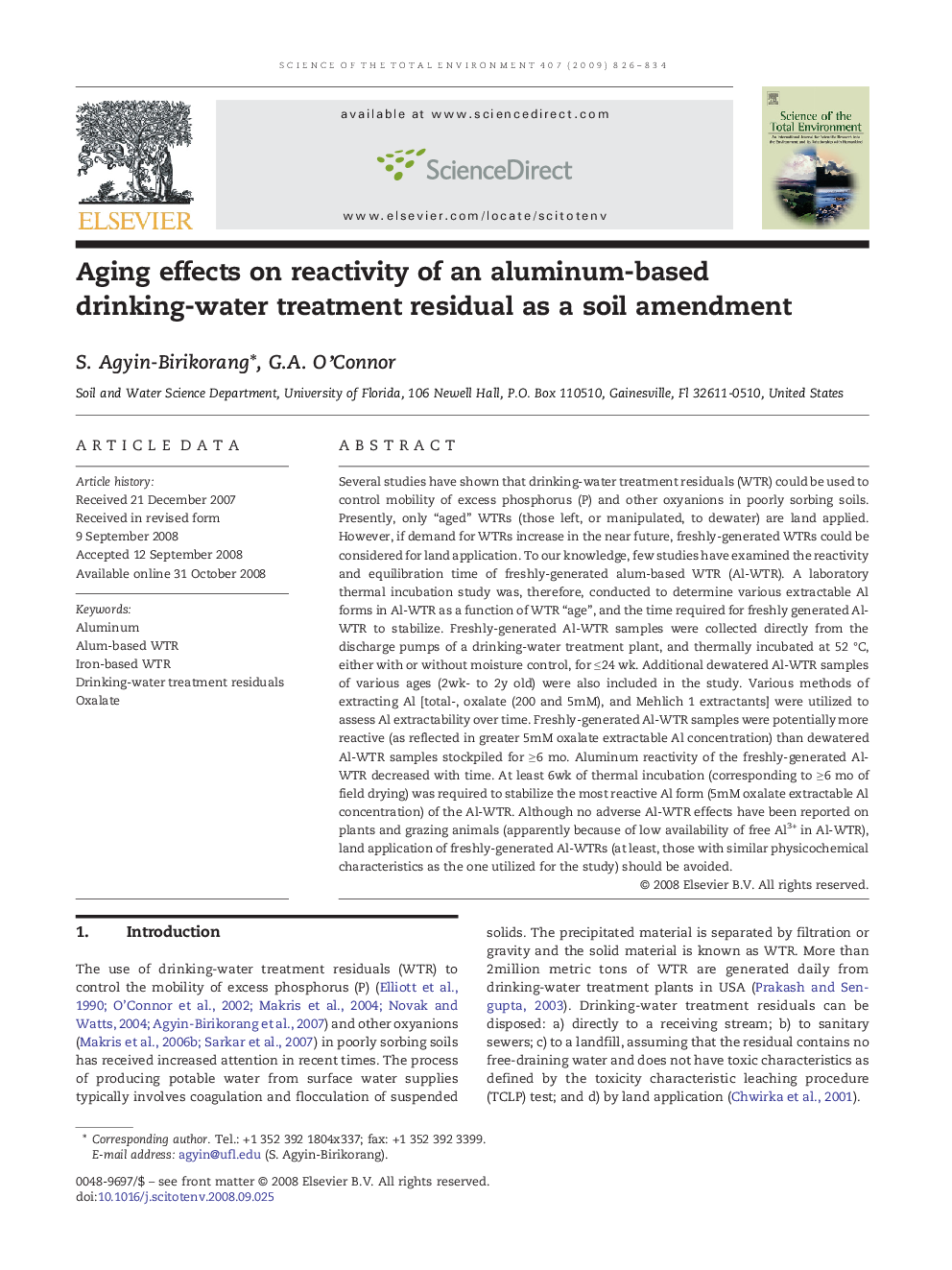| کد مقاله | کد نشریه | سال انتشار | مقاله انگلیسی | نسخه تمام متن |
|---|---|---|---|---|
| 4431895 | 1619908 | 2009 | 9 صفحه PDF | دانلود رایگان |

Several studies have shown that drinking-water treatment residuals (WTR) could be used to control mobility of excess phosphorus (P) and other oxyanions in poorly sorbing soils. Presently, only “aged” WTRs (those left, or manipulated, to dewater) are land applied. However, if demand for WTRs increase in the near future, freshly-generated WTRs could be considered for land application. To our knowledge, few studies have examined the reactivity and equilibration time of freshly-generated alum-based WTR (Al-WTR). A laboratory thermal incubation study was, therefore, conducted to determine various extractable Al forms in Al-WTR as a function of WTR “age”, and the time required for freshly generated Al-WTR to stabilize. Freshly-generated Al-WTR samples were collected directly from the discharge pumps of a drinking-water treatment plant, and thermally incubated at 52 °C, either with or without moisture control, for ≤ 24 wk. Additional dewatered Al-WTR samples of various ages (2wk- to 2y old) were also included in the study. Various methods of extracting Al [total-, oxalate (200 and 5mM), and Mehlich 1 extractants] were utilized to assess Al extractability over time. Freshly-generated Al-WTR samples were potentially more reactive (as reflected in greater 5mM oxalate extractable Al concentration) than dewatered Al-WTR samples stockpiled for ≥ 6 mo. Aluminum reactivity of the freshly-generated Al-WTR decreased with time. At least 6wk of thermal incubation (corresponding to ≥ 6 mo of field drying) was required to stabilize the most reactive Al form (5mM oxalate extractable Al concentration) of the Al-WTR. Although no adverse Al-WTR effects have been reported on plants and grazing animals (apparently because of low availability of free Al3+ in Al-WTR), land application of freshly-generated Al-WTRs (at least, those with similar physicochemical characteristics as the one utilized for the study) should be avoided.
Journal: Science of The Total Environment - Volume 407, Issue 2, 1 January 2009, Pages 826–834